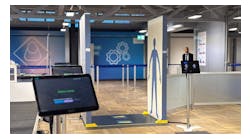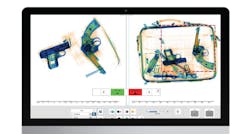How do you lose a jet?
While I confess to wondering that myself since the Malaysia Airlines flight disappeared, my background covering law enforcement and terrorism has trained my focus on the fact that it appears so easy—scratch that--IS so easy to board a plane with a stolen passport.
How is it that a stolen passport--reported to authorities as stolen--made it through airport security? With the ever- constant threat of terrorism, shouldn’t that be an unlikely, if not impossible, scenario?
Technically it’s a greater possibility than one might think. While Interpol offers a Database of Stolen Passports, if no one checks against that database, it is possible to use a stolen passport to board a flight. And Interpol Secretary General Ronald K. Noble estimates that passengers boarded planes without their passports being checked against this database more 1 billion times last year.
Noble’s estimate is likely right on target. According to Chris Bronk, a passport technology expert at Rice University’s Baker Institute for Public Policy in Houston, Texas, the United States, Britain and the United Arab Emirates regularly use this database, but nearly every other country in the world does not.
In addition, just 38 countries utilize e-chip technology to help verify and track passports as part of a visa waiver program. "We've put a lot of technology in passports over the last 10 to 15 years now, and they are harder than ever to forge, but if you don't have the digital backend running, it's just a document," Bronk told Voice of America in an article titled “Mysterious Travelers on Malaysia Flight Raise Questions on Passport Security” by Carla Babb. http://www.voanews.com/content/mysterious-travelers-on-malaysia-flight-raise-questions-on-passport-security/1868411.html
Bronk theorizes that countries are not using the tech tools of the 21st century because the infrastructure needed to use them is both time consuming and expensive. He suggests countries using these technologies successfully help other countries successfully integrate into the Interpol database.
Interpol leadership meanwhile has expressed a desire for airlines to get involved and is preparing an initiative called "I-Checkit" that will allow those in the travel, banking and hospitality industries to screen documents against Interpol’s database when customers book a flight, check into a hotel room or open a financial account.
Both are steps in the right direction. The reason someone might travel with bogus documents is likely not good. Though my experience writing about the criminal element and covering terrorism, mass shootings and kidnappings may color my judgment somewhat, terrorists, drug runners and other criminals are likely among the people who’d have a reason to travel unnoticed. With that in mind, I think most people would feel better knowing that the person sitting next to them on an airplane is indeed the person he/she claims to be.

